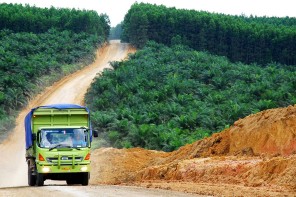Written by: Adrienne Brookbanks
South Africa’s history of colonial conquest and dispossession of indigenous people has lead to decades of mistreatment of local farms. In 2003, the South African Human Rights Commission (SAHRC) released a report that highlighted the appalling conditions (which include child labour, abominable working and living conditions as well as brutality) faced by these people.
Approximately one million people in South Africa work in the agricultural sector and the majority of these workers aren’t permanently employed, which means they often don’t have bargaining power when it comes to fair wages, safe working conditions and other benefits such as maternity leave. Research by ActionAid has shown that human rights violations of women farm workers are widespread on many farms in South Africa.
Are our workers being exploited?
In 2009, the Guardian newspaper ran a story on South African fruit pickers that work for less than £100 (around R1000) per month for British supermarket giant Tesco. According to the article, farm workers in the Western Cape province spend more than 70% of their income on food, implying that they basically work all day just to pay for their meals.
Gertruida Baartman, a single mother of three that works as a farm labourer in South Africa, courageously went to the UK in 2006 and 2007 to confront Tesco executives at their annual general meeting (AGM).
In 2006, Gertruida told 600 shareholders and Tesco CEO Sir Terry Leahy: “I don’t get paid enough to feed my children and I have to work with pesticides with my bare hands. I don’t get the same wages as other men even if I do the same work.”
In response, Tesco made a commitment to change the way they audit fruit farms in South Africa through an independent scheme called WIETA (mentioned later in the article), but a year later Gertruida went back to tell Tesco that things hadn’t changed. At the 2007 AGM, Gertruida said that she was “here again because things haven’t changed in our lives. Our children still go to bed hungry and we use pesticides with our bare hands.”
Gertruida’s efforts weren’t without its risks – when she returned from the UK to South Africa after approaching Tesco in 2006, the farm she worked at refused to re-employ her. The union she belonged to had to fight to get the farm to re-hire her.
What’s being done?
In order to bring change into the local agriculture sector, a small number of projects and NGO’s have been set up. These NGO’s have a range of significant success stories that have helped farm workers’ voices to be heard.
Projects that are making a difference:
Women on farms
The Women on Farms Projectis a registered NGO that works with women in the commercial agricultural sector – mainly in the Western Cape province. The organisation is dedicated to helping women who work on farms. The NGO has programmes for women’s health issues, land & housing programmes as well as trade justice.
The project grew out of a 1992 Lawyers for Human Rights (LHR) initiative aimed at meeting the specialised needs of women who live and work on farms. The organistaion believes that a strong organisation of women, led by women, is vital to bring about change in the sector. At a workshop in 2003 with representatives from a network of Vroue Regte Groepe on farms, the farmwomen took the decision to establish a membership organisation – which is how Sikhula Sonke came into being.
Sikhula Sonke
Sikhula Sonke is a trade union set up to improve the living and working conditions for the most vulnerable farm workers – women and migrant workers. The union is not only focusing on building strong leadership structures, organising campaigns and negotiates with farm owners, but it is also expanding into new regions and building both local and international alliances to make the position of women agricultural workers visible. Some of their success stories include negotiating wage increases, paid maternity leave, medical benefits and improved safety for their members.
While many people may think that farm workers have had the ‘right’ to discuss their benefits and wages for many years, the union’s website proves otherwise. In a news releases posted as recently as 11 May 2011, the union tells how some of its members who work on a farm in Wellington will only now have the ‘power’ to discuss their grievances and wages with the farm’s manager.
Ethical practices in the wine industry
WIETA (Wine Industry Ethical Trade Association) is a non-profit, voluntary association that promotes ethical labour practices in the wine industry. WIETA was formally established in 2002 with the goal of improving the working conditions of employees in agriculture.
The organisation’s code includes the following important principles:
- Child labour shall not be utilised
- Working hours shall not be excessive
- Unfair discrimination is prohibited
- Regular employment shall be provided
- Worker’s housing and tenure rights will be respected
The liveeco team









